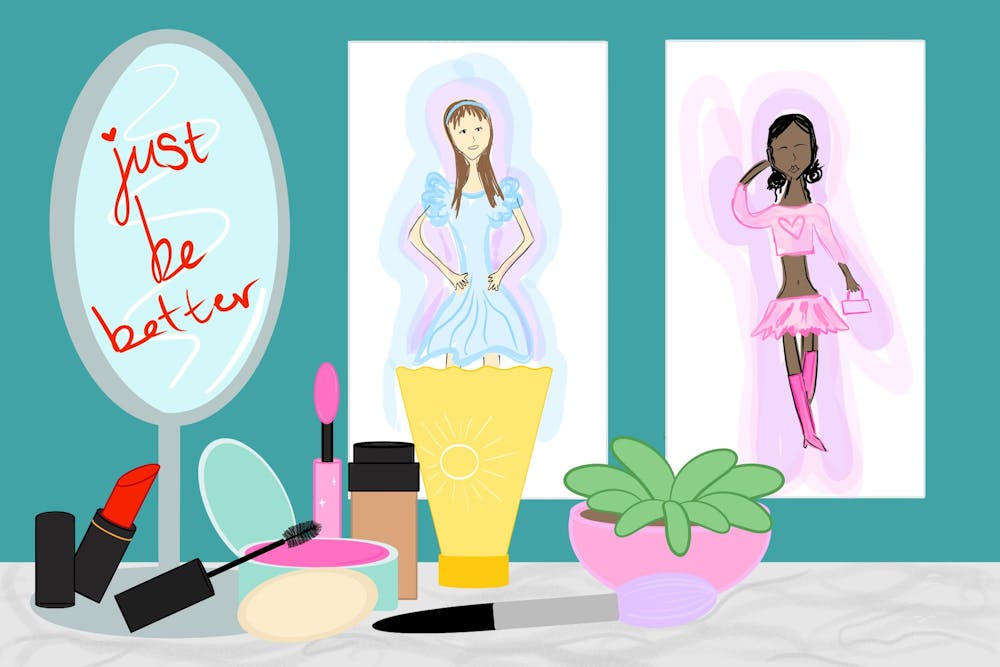Scrolling on social media, window-shopping downtown and even walking through UNC’s campus lately, there is one overwhelming message: there’s a product out there that will fix your biggest insecurity. There is a magical ingredient you’ve been missing in your already endless skincare routine. Just another tiny, miniscule $50 and you will be as confident and glowing as the version of you in that blurry, face-tuned Snapchat filter. Your favorite celebrity swears they were disgusting before they used the product, and who are you to question them?
In 2022, the beauty industry had a $430 billion revenue, projected to grow 6 percent per year to $580 billion by 2027. This is announced as a good thing for brands and business, but this money comes from preying on insecurities, which mostly impacts women. At a time where there is still a wage gap, women are coerced into spending so much money on these products, more than their male counterparts.
Online advertisements are designed to pinpoint the flaws that people are already self-conscious about and provide an “out,” even if it’s completely imaginary. Influencers are paid to sell products, even if these serums, scrubs and lotions are effectively useless. They are expensive investments into an artificial realm of good looks that can never be attained. These ads ruin young women’s perceptions of themselves. They create a culture of incessant “mirror-time” — time spent criticizing and comparing oneself to others.
The beauty industry is profiting off of women’s self-doubt and creates insecurities that women didn’t even know they should have. If the industry didn’t holler about the unsightliness of wrinkles, society wouldn’t be so terrified to age and embody this “unattractive” archetype.
Not only are people’s insecurities exploited online, but they are now targeted on our campus as well. The pop-ups on campus are undoubtedly aimed at college-aged women, with promotion of femininity and youth. These images sell because they are marketed as what determines the value of a woman.
Just last week, a pop-up on campus featured the brand “Pretty Little Thing,” a name that is problematic in and of itself. It encourages girls to think that a certain body is fashionable and desirable — skinny and pretty. The clothing brand is going on a student tour, visiting 18 different colleges across the country, a prime indication that the company seeks to reach young, impressionable girls.
This profiteering from young women extends so far that the shady undertones of the industry are ignored, seen in the newest fad on campus: the Lululemon-UNC collaboration. Lululemon is a historically racist and fat-phobic company, with the founder purposefully excluding certain body types and even naming the company so that Japanese consumers have trouble pronouncing the brand. Yet, UNC is collaborating with it regardless, charging exorbitant amounts for a regular Lululemon product with a tiny UNC logo attached.
This collaboration demonstrates that no part of our lives is untouched by the beauty industrial complex and the compulsory capitalism that it creates. We can’t avoid advertisements, brand deals and TikToks telling us we need to buy something to solve a problem of their own creation. These ads exist in subway stations, on our screens, everywhere. How long until these messages become our internal voice, constantly reminding ourselves of our perceived flaws?
There will always be insecurities, and there will always be people exploiting them. Don’t get duped into the new serum that you know deep down won’t solve your issues of low self-esteem. Confidence must come from within, where you can construct solid self-respect on a foundation that won’t crumble with the inevitable marketing of the next, big beauty product.




